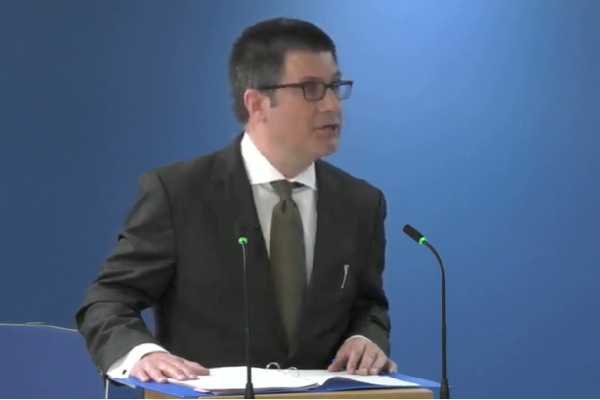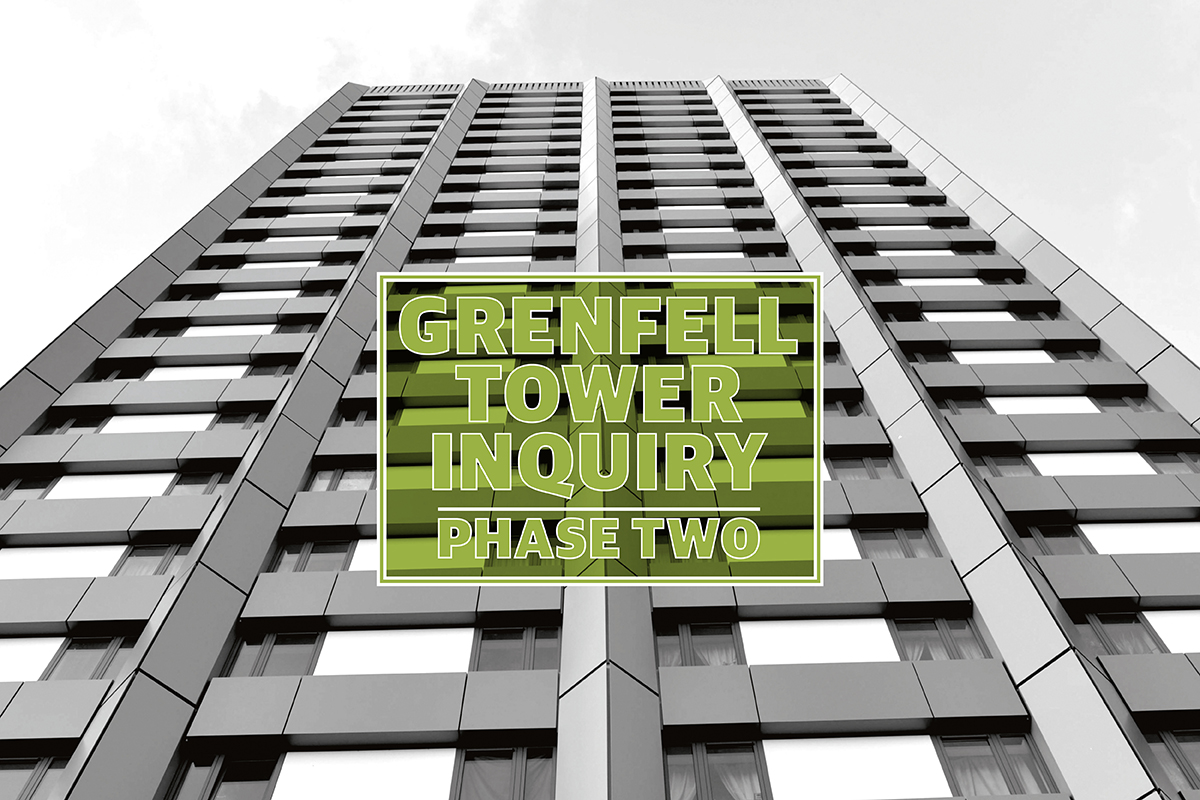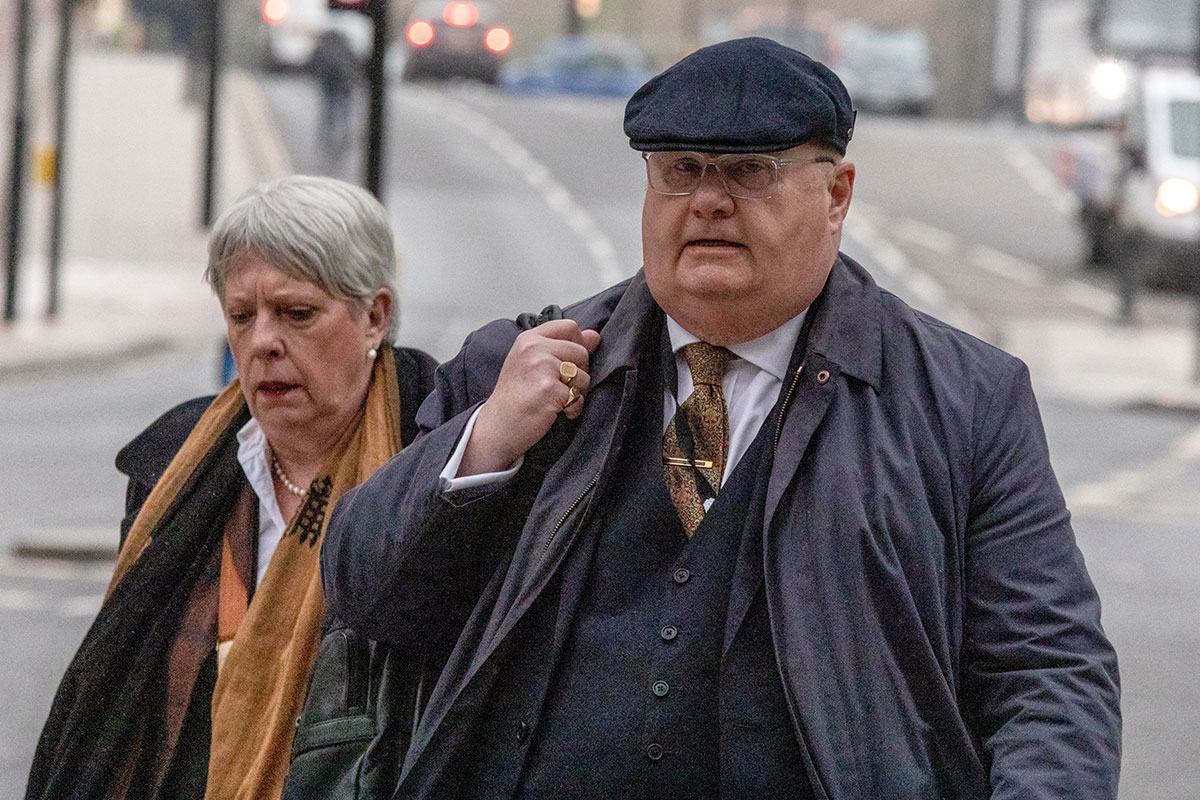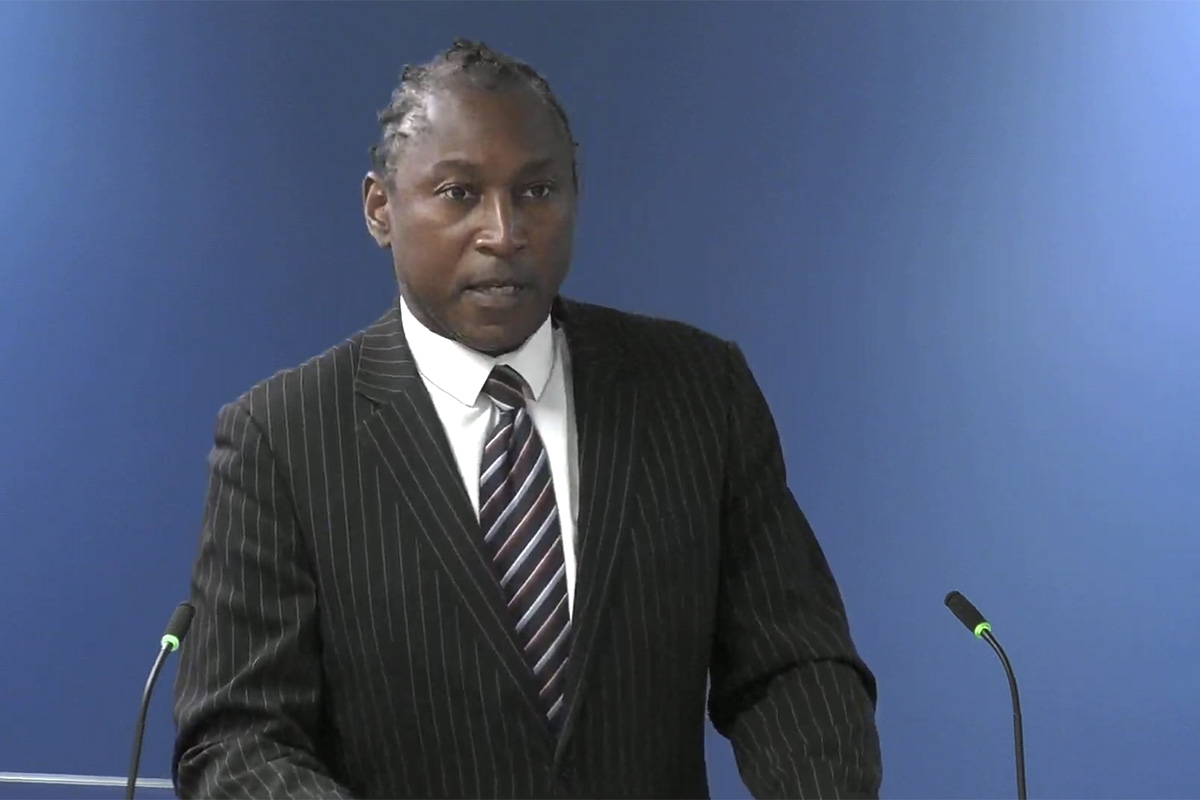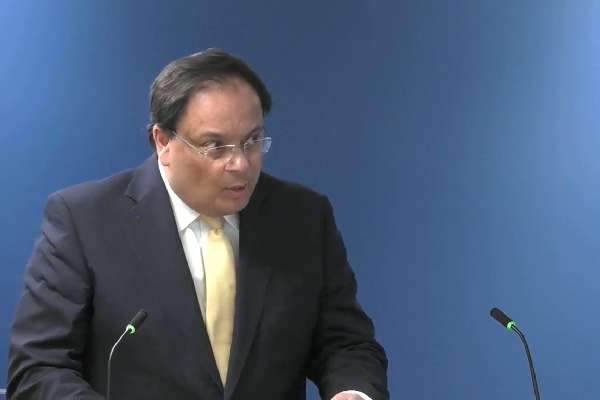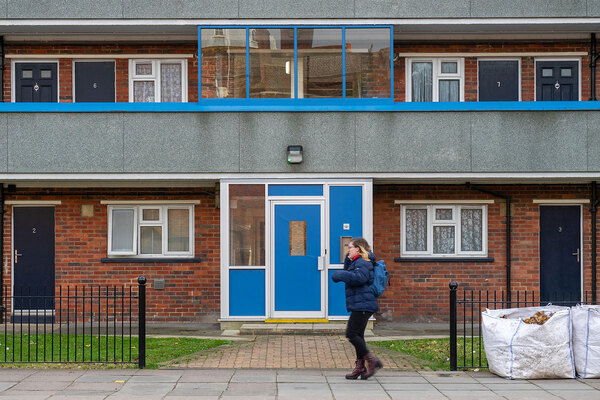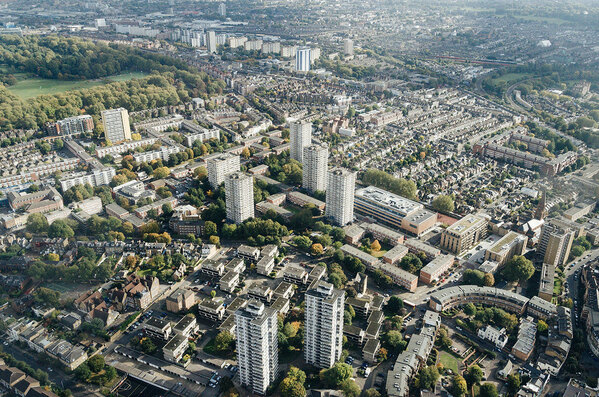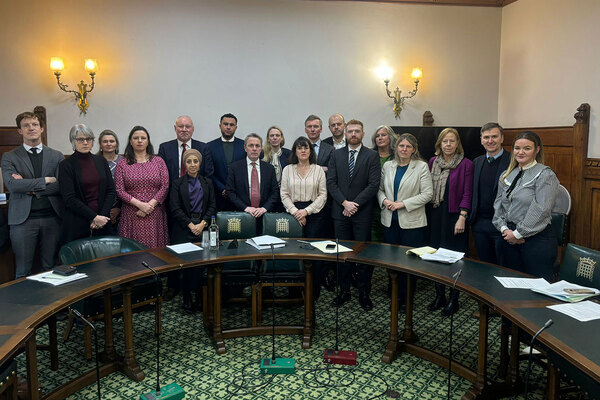RBKC sought to ‘instil fear’ about Grenfell survivors as its response to fire ‘collapsed’, inquiry hears
The Royal Borough of Kensington and Chelsea (RBKC) sought to “instil fear” against survivors of the Grenfell Tower fire in the immediate aftermath of the blaze, as it refused outside help and the emergency response collapsed in “spectacular fashion”, the inquiry heard today.
The Grenfell Tower Inquiry turned today to the disastrous failure to offer proper support to those who had fled the tower and those desperately seeking news on loved ones in the days after the devastating blaze.
Lawyers for bereaved and survivors said the response was left in the hands of RBKC, with the council declining outside help as “that would look like we can’t cope”.
Central government, led by the Department for Communities and Local Government (DCLG), meanwhile failed to intervene and take control of the response, with the council’s chief executive assumed to be a competent ‘gold commander’ despite a lack of training or experience, because he had previously worked at the Treasury.
Left in charge of the response, RBKC was said to have “vanished”, failing to provide for the needs of residents who had fled or to offer clear information to those who had lost family.
Lawyers for the community said that the council adopted a “bunker mentality”, describing residents displaced by the fire as “hostile” and warning that police support might be needed despite no evidence of actual unrest.
Meanwhile, the “human welfare” on the ground outside the tower was described as “dire”, with ‘rest centres’ overwhelmed and a total lack of information for those searching for loved ones.
Addressing the inquiry this morning, Daniel Friedman QC said it was “inappropriate” for RBKC to take responsibility for the official response, given its involvement in the fire.
“At the foot of the burning tower, many [bereaved and survivors] knew or would soon know that their immediate fate lay in the hands of two layers of government most politically implicated in the cause of the disaster: RBKC and DCLG,” he said.
Mr Friedman said that the UK’s legal processes for responding to a disaster place reliance on “unsupervised local government arrangements” and that this collapsed “in exceptional fashion” in the aftermath of the blaze, with regional and central government having “no efficient mechanism” to intervene.
He said that as the response developed, the council “formally attacked” bereaved and survivors as “would-be leaders of revolt” in official meetings, despite no concerns of this kind being raised by police or other responders.
Nicholas Holgate, chief executive of RBKC, told a strategic co-ordinating group a day after the fire that there was “great concern over community tension” with “hostile residents very vocal in negative comments towards the incident”.
A DCLG report on this meeting noted concerns that “several embittered residents” were “painting the situation in a very poor light. Incite a mob”.
Mr Holgate was said to have warned that residents of the tower had been “complaining for a long time” and said: “Several people could make this worse than it is and the council is worried that they might need assistance from the police.”
A day later at the co-ordinating group, RBKC claimed that “hurt and anger” was being “stoked by a small number of known local instigators who continue to fabricate stories to further their aims”.
“I emphasise again, this was not the position of the police, who were advising that there should be a meeting to provide reassurance and clarity,” said Mr Friedman, adding that the police had “no intelligence to indicate any disruption or significant public disorder”.
“RBKC’s efforts to instil fear of the crowd against our clients could not have underscored more why it was inappropriate and unjust for response and recovery to remain under its control,” he said.
RBKC was said to have been one of a number of London local authorities that took a ‘de minimis’ approach to its preparation for disaster management, with little training or experience for senior staff in this area.
Despite this, when it was offered the opportunity to hand over control of the developing crisis to the pan-London ‘London Local Authority Gold’ (LLAG) at 7.44am on the morning of the fire, it declined.
Mr Holgate is reported to have said: “That looks like we can’t cope.”
Instead, he became ‘gold commander’, with RBKC in charge of the response, despite having “no experience to manage a significant emergency” and “apparently minimal training”. LLAG did not take over until 2pm on 16 June – two days after the fire.
Mr Holgate was also said to have been “reluctant to take housing assistance from Labour councils” as it sought accommodation for those who had fled the tower.
“Why on earth, we say, was Mr Holgate apparently so reluctant, unable to accept help? And why did he fail to appreciate the scale of the disaster?” said Imran Khan QC, appearing for another group of survivors. He noted that “petty party politics took priority over the lives of our clients”.
Mr Khan also read from a statement from Sadiq Khan, mayor of London, who said that RBKC’s failure to accept outside help meant that “no one else could step in and take charge of the situation”.
“This was extremely frustrating because I could see that pan-London support and co-ordination was urgently needed. To this day I still don’t really, really understand why RBKC were apparently so unwilling to ask for help,” he quoted the mayor as saying.
The council was also said to have seen itself as an “undeserved suspect and victim”, and was focused on managing its reputation, seeking “political support” from other London boroughs on the day of the fire.
Kensington and Chelsea Tenant Management Organisation (KCTMO), the body responsible for the housing management of the tower, meanwhile was said to have been planning to “commission a PR firm to put its message out” regarding the compliance of the refurbishment at 11am on 14 June, with the tower still burning.
Central government did not intervene, with Melanie Dawes, permanent secretary at DCLG, describing council leader Nicholas Paget-Brown as “a safe pair of hands who runs a tight and steady ship”.
She believed Mr Holgate would make a good gold commander because he had previously worked for the Treasury and the department had “a very good relationship” with him.
Mr Friedman said that DCLG and RBKC were “two compromised state entities mutually accommodating one another” and that “their leading on recovery was unacceptable”.
There was no prime minister-chaired COBRA meeting to take control of the situation, with a central government document asserting that the fire was “clearly… being managed extremely well by local responders”.
However, by 17 June senior civil servant Mark Sedwill warned Ms Dawes that the council was “completely out of their depth” and said if the government did not take exceptional measures “this will become our New Orleans”.
The chaos was such that Belushi’s bar in Shepherd’s Bush was initially designated as the official rest centre despite it being a bus ride away from the tower.
As a result, without a “pre-planned and structured approach”, residents displaced from the tower and the estate were said to have “suffered a torrid pillar-to-post experience that was physically harsh as much as deeply insecure”.
The Westway Sports Centre, near the tower, became a key ‘rest centre’ for those who had fled, but was described as “overwhelming” in terms of “noise and movement” and “chaotic” with “no leadership or any organisation”.
Mr Khan read an email from Jo Farrar, the director general for local government at DCLG, who visited the centre on 17 June.
She said that she was aware what a “well-managed and properly co-ordinated relief effort should look like” and that this “did not appear to be either”, with “a notable absence of senior RBKC officers”
One bereaved family member, searching for his relatives was said to have entered a local bar and grill, where he found “smoke inhalation victims shaking with trauma and shock”.
Mr Friedman said that “a vast number of distressed people, some crying, some numb, many in states of high anxiety” were moved from centre to centre, with no official responders present.
With the limited rest centres overwhelmed by those who had fled the tower, friends and relatives who were desperately searching for loved ones were left with nowhere to go.
People were turned away from the rest centres because they could not provide identification, which had been destroyed in the fire, or because they were not listed on out-of-date tenancy registers.
With no pre-existing emergency housing plan, accommodation was found for survivors in hotels, with many suffering profound anxiety when housed on upper floors. Others were placed in “unsuitable overcrowded conditions” or left without support for disorientated relatives with conditions such as dementia.
Professor Leslie Thomas QC, appearing on behalf of another group of bereaved and survivors, read shocking testimony from a series of survivors and bereaved about how they had been “abandoned”.
These included a resident with disabilities, who walked using crutches, who did not see anyone from the council for two days and was placed on the 10th floor of a hotel – despite her condition being logged.
She was left “distressed and scared” and “tried to explain why she would not feel comfortable at the prospect of living so high up”.
But “nobody contacted them”. They were later moved to another hotel, which required them to descend five floors to use the toilet.
Another family was given a hotel room with a single bed, which left a pregnant mother with a slipped disc sleeping on the floor because the bed was unsuitable for her.
There were also several stories of families being given “misinformation” that relatives had escaped the tower when they had in fact died.
Mr Thomas described the situation of one relative, who discovered that several family members had died, despite previously being told they had survived, while standing outside the premises of a local charity that was offering support.
“The screams of his sister drew the attention of the assembled media, who ran towards them, pushing cameras in their faces,” said Mr Thomas. “Even in this darkest hour, they could not grieve properly… There was no family liaison officer at the scene.”
“I was lost. Nobody contacted me. Eventually the outreach team contacted me once prompted by my sister,” Mr Thomas quoted the family member as saying. “I felt I had no support and that myself and my family did not matter. There was no psychological support. There were no social workers and counsellors on the scene in the immediate aftermath of the fire.”
There was said to have been no “single line or main source of communication” about the identification of victims, with bereaved people reliant on “small pieces of information through word of mouth”.
Mr Thomas described families travelling from hospital to hospital searching for their relatives with “no help or direction from the authorities, not RBKC, not [KCTMO] and nothing from the police”.
Those who lived at the base of the tower were required to return home, despite amenities not functioning in their properties. “Children, who knew other children who died in the fire [were] literally playing in its dust and debris,” Mr Friedman said.
“Each [bereaved and survivor] had ground zero moments,” said Mr Friedman. “It might be just looking up at the tower or it might be being aggressively shouted at by the police or frantically looking for family.
“As they lived through the inquiry's chosen topics of rest centres, initial accommodation, finances and response services they accumulated more of those moments: of people treating them with bureaucratic distance, or requiring them to relive their trauma, or trying to take from them, or ignoring them, or telling them facts they knew to be untrue. Or perhaps their most common experience, that no one engaged with them at all.”
He added that the failure was caused by “the system of localist and deregulated governance of civil contingency that derived from decisions that central government had made”.
“There is no sophisticated system somewhere in central London with plans data and specialists that can grasp reality quickly and affect change,” he said. “Everyone should know the entire system wagered on the local authority having the capability and capacity to deal with matters on the ground. And in the case of RBKC that wager fundamentally failed and the system crashed.”
The inquiry is investigating the seven days immediately after the fire, which means it will not address wider issues about the state’s long-term response.
It will hear evidence from bereaved and survivors first, before calling witnesses from the council, KCTMO, voluntary sector organisations that provided support and finally central government.
Permanent secretary Ms Dawes will be called to give evidence, as will former fire minister Nick Hurd.
Appearing in the afternoon, a lawyer for RBKC said the council “accepts that its leadership was unable to cope in the days after the fire” and “apologises for the fact that it was unable to do so”.
James Maxwell-Scott QC said the required response was of “unprecedented scale and complexity”, however he said the council “apologises unreservedly” for various failures and added that it “deeply regrets” the harm caused.
He added that in recent years “the council has improved both its oversight and contingency planning” for major incidents.
Appearing for the Department for Levelling Up, Housing and Communities (DLUHC), the current name for DCLG, Jason Beer QC (pictured above), said: “The department is clear that the initial response to the disaster was inadequate. In particular, the response by RBKC was inadequate.”
He claimed that “when concerns about rbkc delivery of its response, were raised with the department these were escalated properly… and the department took swift action alongside others to investigate and deploy support.”
However, he added that a senior official should have attended the scene by the morning of June 15 “at the latest” and that a commitment made to complete the rehousing process inside three weeks was “too ambitious”.
The inquiry continues, with evidence from bereaved and survivors beginning tomorrow.
Sign up for our weekly Grenfell Inquiry newsletter
Each week we send out a newsletter rounding up the key news from the Grenfell Inquiry, along with the headlines from the week
Already have an account? Click here to manage your newsletters
